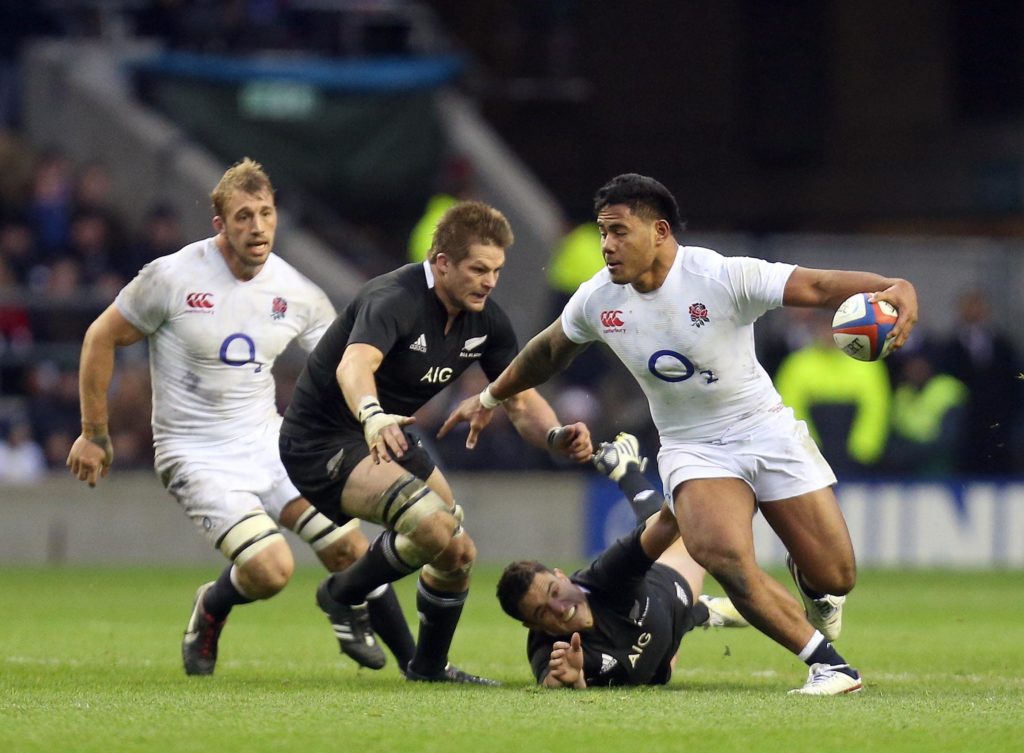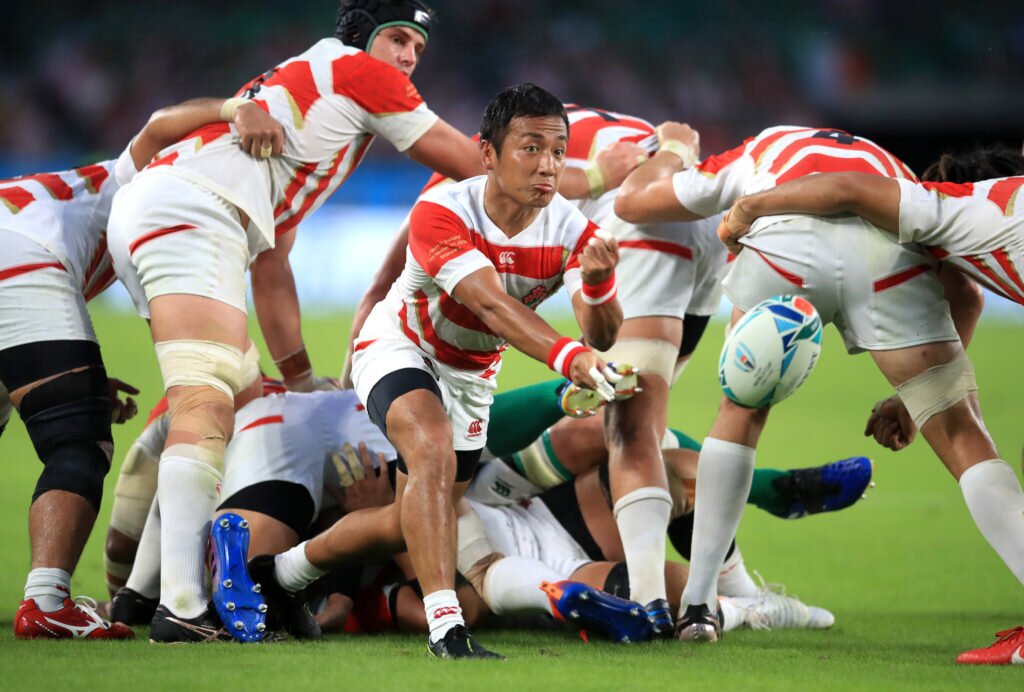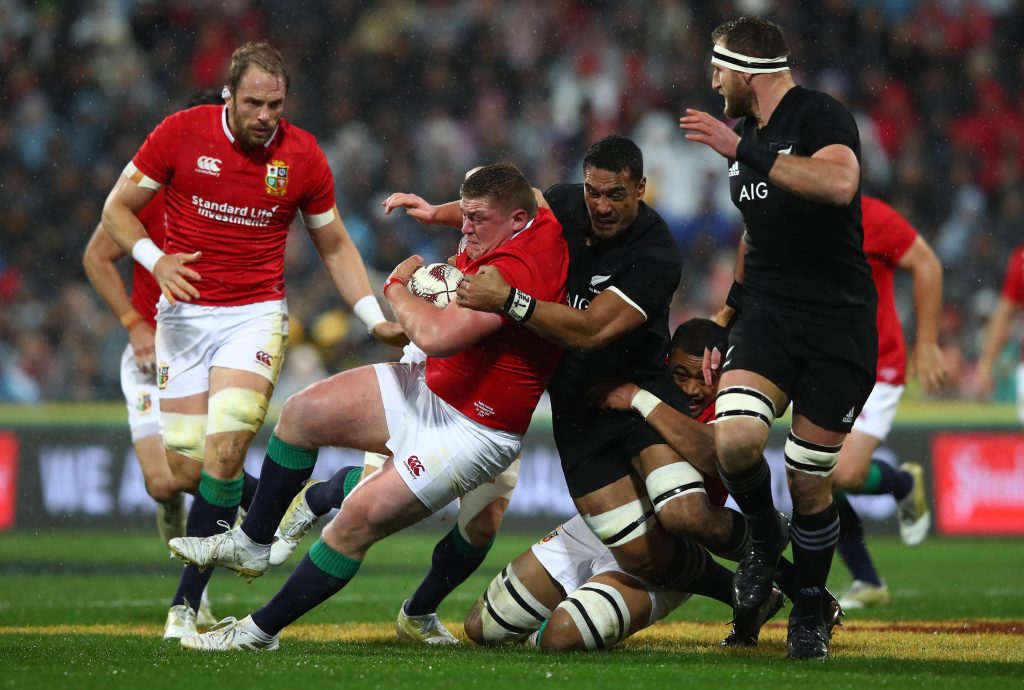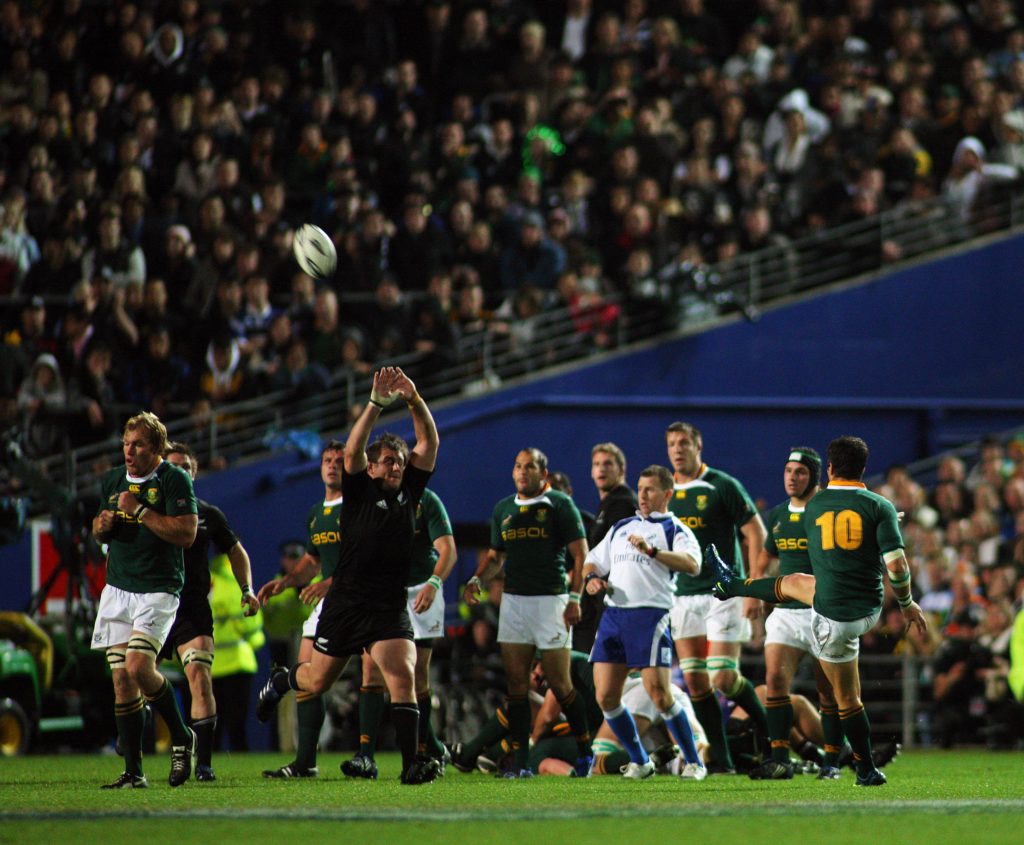No one fully realised at the time, but the 2017 British and Irish Lions did much more than draw the test series with the All Blacks.
The Lions changed the international landscape in a far more profound manner – they persuaded most of the rest of the world that they should give up all creative ambition and hang their tactical hats almost exclusively on rush defence, strong set piece and incessant box kicking.
They forced this tactical revolution because by playing the way they did to draw the series, they managed to highlight a vulnerability within the, up until then, almost invincible All Blacks.
Between 2012 and 2016 the All Blacks lost just four tests. It felt like the only way they could be beaten over that period was to strike them on a bad day.
England, who claimed one of those four wins, encountered a tired team in December 2012 – one that had been hammered by a novo virus in the 72 hours before the test.

When South Africa won in 2014, they sneaked home with a last-minute penalty against an All Blacks side that was missing several key figures. Australia’s win in 2015 came more because the All Blacks were focused on their World Cup campaign than they were that particular Rugby Championship match while Ireland won in 2016, mostly because the All Blacks were without both Brodie Retallick and Sam Whitelock and were perhaps wallowing in the glory of their unbeaten 18 test run.
Between 2012 and 2015 the All Blacks were superb and then throughout 2016 they were averaging in excess of five tries per game and 43 points. They were crazy good – playing a style of attacking rugby that was almost impossible to contain or subdue.
And then, boom, 2017 arrived and a team that were just about untouchable were made to look surprisingly fragile. The Lions had found the Kryptonite – which was essentially taking an aggressive defensive, low-risk game to the All Blacks for 80 minutes.
It wasn’t the most inspiring rugby ever seen, but it was certainly effective and, in that way, inspiring. It became the blueprint to beat the All Blacks and by extension, the preferred way for England, Ireland, Wales and South Africa to play.
If everyone were honest, they would admit that the majority of the rugby on show at the 2019 World Cup wasn’t great. Japan and the All Blacks were the two teams who brought adventure and ambition – which didn’t turn out to be enough to respectively beat South Africa and England.
The All Blacks went from losing four games in five years, to losing six games in the next three years. England, Ireland and South Africa suddenly had the magic formula and test rugby went from being a multi-faceted, fast-paced, highly-skilled game to one that would predominantly descend into a set-piece, collision war-fare where both teams were eager to be without the ball.
If everyone were honest, they would admit that the majority of the rugby on show at the 2019 World Cup wasn’t great. Japan and the All Blacks were the two teams who brought adventure and ambition – which didn’t turn out to be enough to respectively beat South Africa and England.
It was a tournament dominated by negative rugby – the sort we saw the Lions play in 2017 – and things only went further down that road last year.
The Six Nations was mostly a disaster as far as entertainment went. There was too much rushing, defending and box kicking and nowhere near enough artistry or magic.

The Tri-Nations wasn’t much better and there were a few weekends in October and November, when both competitions were being played, that were truly awful adverts for the game.
A blueprint formed by the Lions had been taken too far by too many different teams. The basic premise of using defence as offence and patiently breaking an opponent down through a conservative approach had seemingly grown into a Frankenstein’s monster of a gameplan.
Rugby became just about unwatchable late last year – something that may, it seems, have sparked international coaching teams to have a re-think.
This year’s Six Nations had a different flavour. There was still a reliance on set-piece and collisions and it still felt like there were times when there was hardly any space on the field. But we saw greater ambition and creativity and rugby looked a lot more like rugby again.
There were green-shoots visible [in the 2021 Six Nations] to suggest mind-sets about attack were slowly broadening and the Lions tour has the potential to have a dramatic impact on the future direction the international game takes in the next few years.
There were 86 tries scored in total – up from the 74 scored in 2020. Four of the six teams scored in excess of 130 points – whereas only two exceeded that total in 2020 and four of the six teams had points differentials in excess of 35, compared with 2020 when only England managed to reach a similar figure.
It wouldn’t be right to say rugby blossomed in the Six Nations, but there was certainly more open football and longer periods when both teams on the park were looking to hold and use the ball rather than automatically kick it away.
There were green-shoots visible to suggest mind-sets about attack were slowly broadening and the Lions tour has the potential to have a dramatic impact on the future direction the international game takes in the next few years.
Just as the conservative, defensively-minded Lions of 2017 re-shaped the game heading into the 2019 World Cup, so too can the 2021 version do the same leading into 2023.
More succinctly, if the Lions play a fast-paced, pass and catch game in South Africa where they try to run the larger, world champion Springboks off their feet, it should encourage an acceleration of a similar style being adopted by the individual home nations when they return from the Republic.

And already, it would seem, that the Springboks are expecting exactly that sort of rugby based on the squad the Lions have picked.
“Scotland have got eight players in the squad and five of them are backline players. [Scotland head coach] Gregor Townsend is the attack coach. That must tell you something,” Springboks director of rugby Rassie Erasmus says.
“If you look at their forwards, it is a fast, quick pack. The props are mobile, quick guys. The same with the loose forwards. If Courtney Lawes is playing lock then all those loose forwards are fast and busy.
“We are definitely going to see a mix [in style of play], not the Wales test match [in 2019] of who grinds it out.”
The essence of the squad Warren Gatland has picked says physical yet mobile: it says direct, confrontational and yet with a hint of ball-playing ability and vision and what history has shown, is that if the Lions can make something work for them, it will result in a global shift in thinking.
In 2009, the Springboks won the series playing muscular, kick and chase rugby which became widely adopted. The Boks came out of the series super confident and to prove they had cracked the code on how to play during that period, they beat the All Blacks three times that year.
It is probably more accurate in fact, to say the world will be influenced by the style of rugby they see the winner of the series play.
In 2005, the All Blacks destroyed the Lions 3-0, in a series which announced the arrival of Dan Carter as a world-class first-five and confirmed the brilliance of Richie McCaw. It was also a series that opened the eyes of the world to what could be achieved by picking players with vast skill-sets and a game-plan with a heavy emphasis on continuity.
Many of the Lions players arrived home from New Zealand in 2005 acutely aware of just how far behind they were in basic skills and conditioning.
In 2009, the Springboks won the series playing muscular, kick and chase rugby which became widely adopted. The Boks came out of the series super confident and to prove they had cracked the code on how to play during that period, they beat the All Blacks three times that year.

What was more interesting, however, was that the All Blacks, after the third defeat, raised a white flag of sorts and admitted they had to change their style and selections to match the South Africans.
Out went explosive, power wings and in came the likes of Ben Smith, Zac Guildford and Cory Jane who were deemed the sort of high ball experts the team needed.
A Lions series acts as a rudder for the world game and there is no doubt that this year’s clash in South Africa has the potential to result in significant change and no other country will welcome a shift in global thinking as much as New Zealand.
The All Blacks have not loved the heavy emphasis which has been placed on defence and box kicking in the last two years.
They play like a piano accordion; they spread you out, then tighten you up, then spread and tighten you up again.
Former Wallabies coach Michael Cheika on the NZ Super Rugby teams
It’s a style of rugby that doesn’t suit their athletic base or default thinking which is to look for and exploit space. They are a team that wants to play with the ball not without it and just how good they are at that has been evidenced throughout Super Rugby this year.
The Super Rugby Trans-Tasman table has New Zealand sides occupying the top five places with just two defeats incurred in total to Australian opposition. As much as that indicates problems in Australia, it also illustrates just how good New Zealand players are at playing unstructured, off the cuff rugby where they have to transition from defence into attack or vice versa.
Former Wallabies coach Michael Cheika summed it up best after the Crusaders had destroyed the Reds in Brisbane in round two.
“They play like a piano accordion; they spread you out, then tighten you up, then spread and tighten you up again. The Reds got a bit rattled, started following the Crusaders around and they’ll lead you on a merry dance.
“We’ve been pumped alright, but you just have to fight back next week, get over it and get back up on your bike and win the next game.”
The Lions have will have their eyes only on a series win next month, but the series will have so much more riding on it.


Comments
Join free and tell us what you really think!
Sign up for free